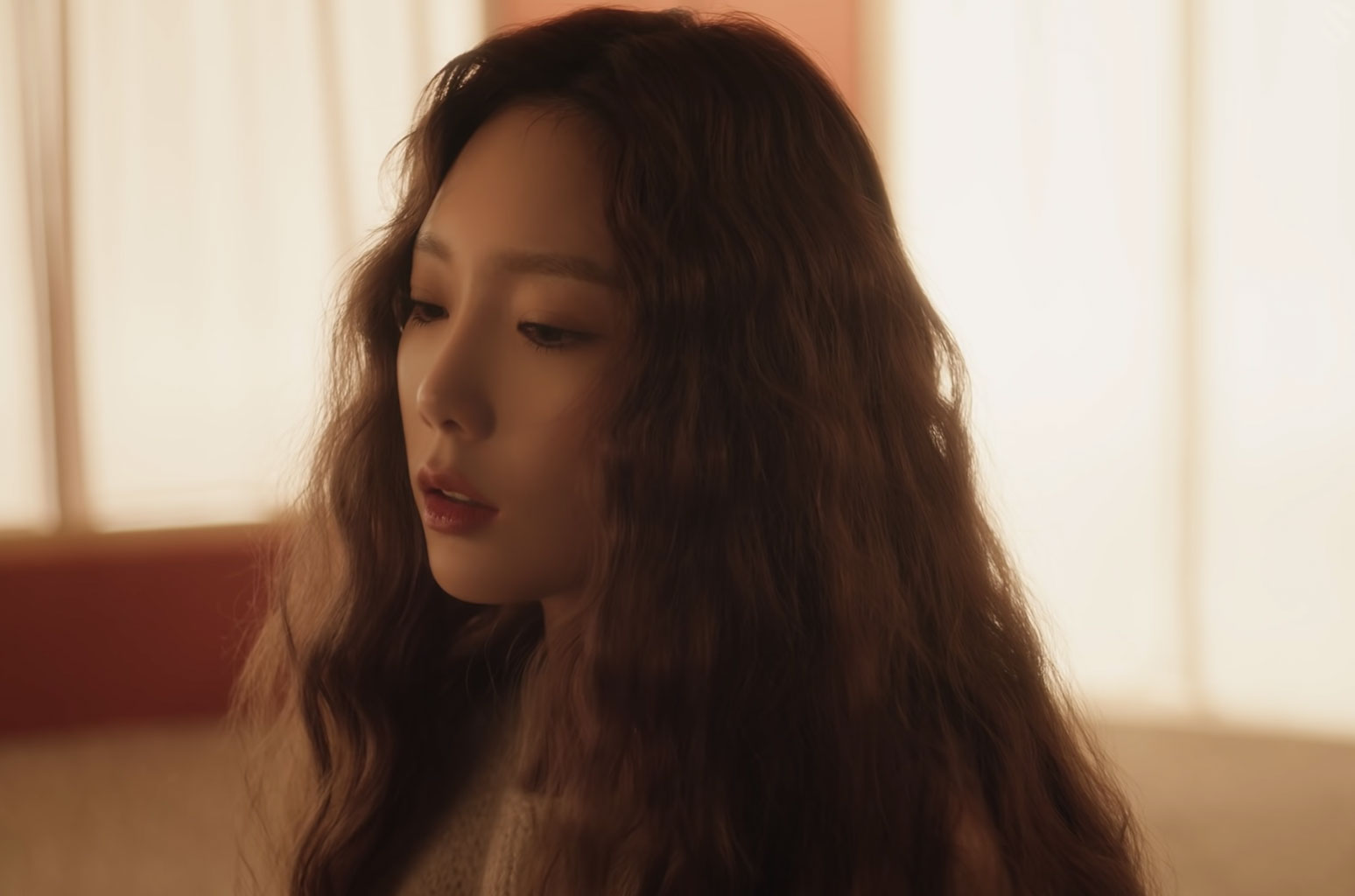Right off the bat, it’s important to state — I am a big Taeyeon fan. Actually, I’m a really big Taeyeon fan. She is one of the few artists who, up to this point, I genuinely enjoy all of her releases. Taeyeon has the ability where she somehow knocks every one of her singles out of the park. I’m not even talking about the Houston Astros in the 2017 World Series out of the park. I mean legitimately, without cheating, out of the park. I am also a really big sports fan. But I digress…
I am not even afraid to say — forgive me in advance — that her solo career has produced way better-quality music than SNSD‘s repertoire. Agree with me or not, she is definitely proving to be a legend.
From the recent re-package of Taeyeon’s second album, Purpose, “Dear Me” was released as the title track amongst three new songs. “Dear Me” isn’t the ‘purest’ example of a ballad, but instead, you can classify it under the ‘pop ballad’ sub-category.
I had high hopes for “Dear Me” immediately as it began. The trio of Taeyeon’s voice, a soft yet catchy guitar riff, and a piano for good measure was setting up for what I thought would be an emotional piece of music. Instead, I found myself slightly disappointed as it immediately jumps into a ‘hard-hitting’ chorus. In this case, I mean hard-hitting in the literal sense. Setting up no transition whatsoever, the chorus enters with a full-band accompaniment. It’s a complete contrast from what was introduced moments before, almost as if it’s a chorus taken from another song and pasted right into this one.
Let’s use this as a teachable moment! As it is a ‘pop ballad’, it would be conceivable to understand why this method was used. In my last column, I spoke about the purpose of a chorus hook. This is the most important aspect of any modern-day pop song. In a ‘traditional’ ballad, however, there is a story. There is a narrative. If done correctly, the story is not only expressed through its lyrics, but also by the music behind it. As the story unfolds, the musical texture becomes thicker. The journey or process is just as important as its destination. This is not the case with a pop ballad, or its generic pop music counterparts.
In other words, this is just a really drawn-out way of saying that the pop ballad has more in common with stereotypical pop songs than it does with its ‘traditional’ ballad half-sibling. Perhaps the only similarity is their slow tempo. Pop ballads are more like stereotypical pop songs because the focus is solely on the chorus. There is no musical set-up or any emphasis on an over-arching narrative. The entire point is to get to the chorus! The chorus. The chorus. Get to the chorus! You could argue it doesn’t even matter how you get there. It took just over 30 seconds for the chorus in “Dear Me” to appear. That’s fast!
With this information and a deeper understanding of the context surrounding pop ballads, the song actually becomes a lot better in my opinion. I become less disappointed and more appreciative for what it is. While I would consider most of the lyrics as ‘fluff’, the chorus, as it should, conveys a nice message that connects to the title of the song, especially in the last time it appears:
“If I can only tell myself someday. I love myself. I trust myself. Will you remember?”
It’s cute. I’m all for self-empowerment and self-belief. It’s not very deep, is it? But hey, it’s catchy. I can’t say anything bad about it. It did the job it was set out to do. I find myself singing the chorus line over and over again only after a couple of listens, and I even forget about how cheesy it may actually sound.
Being such a big fan of Taeyeon, I do expect a lot from her. “Dear Me” is not one of her shining moments. In fact, it’s probably one of her worst singles in a long time, if not ever. I think that alone shows how great of an artist she is because this song is not even bad. It is a solid pop ballad and that’s all it is. You don’t have to love “Dear Me,” but you can’t deny its relevance in today’s world of K-pop.
 Asian Junkie Asian pop. Without discretion.
Asian Junkie Asian pop. Without discretion.
